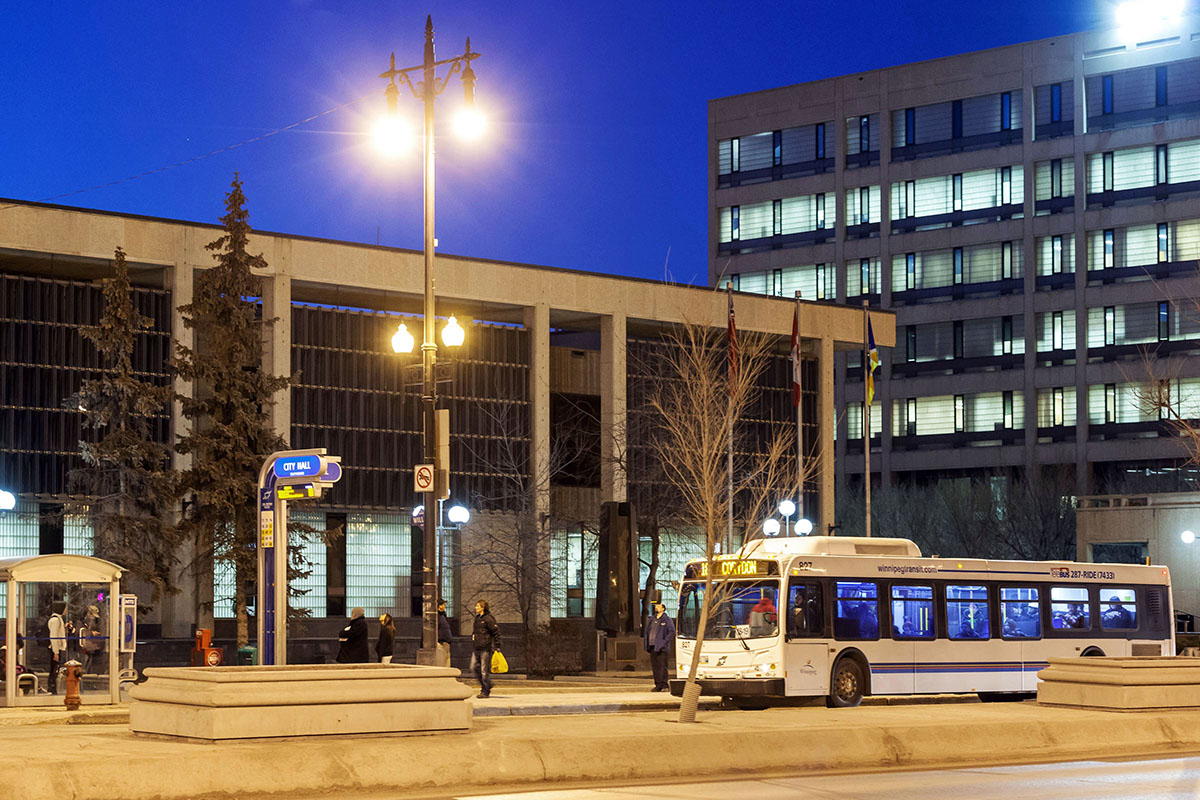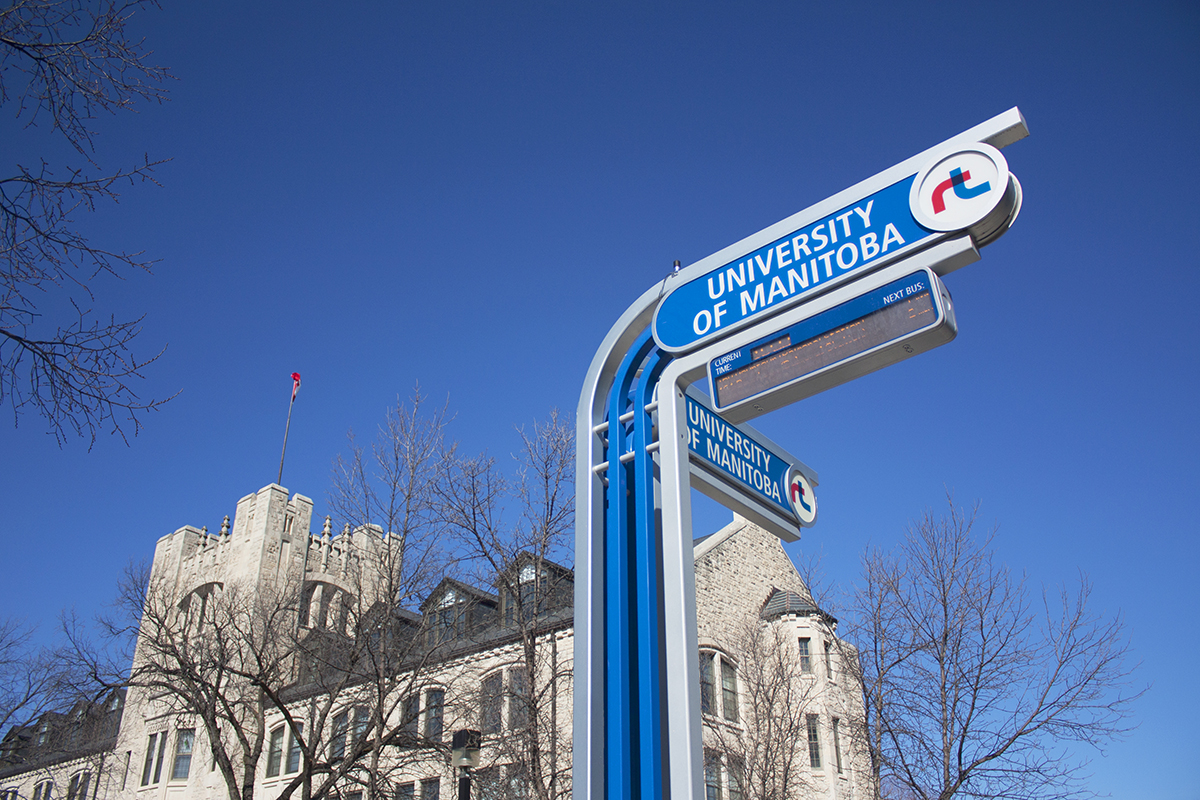A preliminary budget released by the City of Winnipeg Friday has the city’s post-secondary students bewildered by a recommendation to scrap the U-Pass program.
UMSU president Jakob Sanderson said he was broadsided after learning the city intends to cut a program that students showed strong support for in a referendum just last month.
“I don’t know if there was a breakdown in communication or what but it was certainly a slap in the face [to] the students who put in so much effort to pass this referendum,” he said. “It was a complete blindside to us and to students.”
The inaugural U-Pass contract expires in May 2020 and the preliminary budget recommends against renewal. The program rolled out at the city’s two universities in the fall of 2016. Red River College was expected to be included in the next contract, which prompted the city to recommend a price increase of $24.50 per term for U of M and University of Winnipeg students.
The fee increase triggered referendums at both universities. Undergrads at the U of M signalled strong support for renewal last month. The U of W returned an even more decisive vote last week.
Sanderson said he was especially disappointed that it was the city that set the fee increase at a rate it was not prepared to honour.
“They gave us one rate,” he said, “we went to referendum on that rate, it passed overwhelmingly and then to cancel at this point, they’re disregarding what’s been an extremely successful program.”
More than 9,300 U of M students cast ballots in February’s referendum with more than 5,550 voting to maintain the service in the final tally. Extending the service through the summer was defeated in the first round of a preferential ballot. A 2014 referendum to establish the program only narrowly passed by 53 per cent.
The U of M Graduate Students’ Association (UMGSA) has its own referendum on the fee hike scheduled for April 6 to 7 and president Carl Neumann said he is worried the city has not been up front with student groups.
“We are concerned that the city may have been bargaining with student groups in bad faith,” he said in a statement.
“The proposed cancellation of the program is all the more troubling given the very strong referendum support of students for the program even at significantly higher rates. We have to ask ourselves why the city proposed the revised rates that they did if those increased fees are insufficient to maintain the program.”
Sanderson echoed Neumann’s frustration that the city may have never intended to renew the program.
“I don’t know if the city was hoping that the referendums would fail so that the cut wouldn’t have to be on them but the reality is that students took a $50 increase to their most-used service and they voted overwhelmingly ‘Yes’ and they showed a lot better leadership on climate than the city has,” he said.
The U of W voted on the fee increase just last week and also signalled overwhelming support, with more than 1,100 of a total 1,342 ballots cast in favour of maintaining the program.
Jibril Hussein, who will take over as president of the University of Winnipeg Students’ Association (UWSA) following last week’s executive election, called the potential loss of the service devastating.
“It just makes you question whether [Winnipeg Mayor Brian] Bowman and all the city councillors have been listening to students,” he said.
He continued that “82.7 per cent of voters who voted in this past election literally a few days ago voted in favour of keeping the U-Pass and now they’re just going to throw us under the bus and eliminate it all together.”
Students at Red River College, who missed out on the first round of the pass, have been working for close to six years to bring the service to campus and were expecting to finally be included in the fall.
Joshua Roopchand, president of the Red River College Students’ Association, said “It was a bit of a shock to us” and “We’re a bit upset about it.”
“We’re not really happy with the situation right now,” he said, “and I think we’re trying to communicate that to see where we can go.”
“It’s something that we were hoping to get and now it’s being pulled away,” he added.
Currently, the service costs $136.25 per four-month term. In November, a standing policy committee on infrastructure renewal and public works report recommended the city enter into a four-year agreement with all three student associations and institutions at the increased rate of $160.75 per term. The report was unanimously endorsed by the committee and later city council.
The report states that the revised rate structure would offset the operating costs and maintain the current level of subsidization from the city.
Friday’s preliminary budget suggests that the loss of the U-Pass is balanced by a post-secondary pass and notes that some students can additionally qualify for a low-income pass that will be rolled out.
But Sanderson questioned that logic, noting that fewer students using transit would not only likely lower the revenue brought back into the city as they return to their vehicles but would also work against the city’s broader goal of increasing ridership.
“I don’t think the math works out, I don’t think the narrative works out,” he said. “The reality is that students wanted to keep this program around and they never even gave us another rate to consider.”
He also pointed out that many students would not qualify for the low-income pass.
Even at the increased rate, the U-Pass represents a 61 per cent savings on regular transit fares. The post-secondary rate is a 20 per cent discount and a low-income pass will be 30 per cent cheaper in April 2020 which will climb to 50 per cent by 2022.
Sanderson also noted that bus ridership on U of M-bound routes has increased 25 per cent since the pass rolled out but that he doesn’t expect that to hold if the pass is eliminated.
He said UMSU is organizing a campaign to challenge the cut which will include rolling out a petition, establishing a phone bank in UMSU University Centre to encourage students to phone their city councillor, and appearing in numbers to present to the executive policy committee’s March 19 meeting.
The budget will be voted on by council March 25.
Graduate students are especially inconvenienced by the period of limbo, with their referendum on the fee hike scheduled for next month. The vote has already been rescheduled once after the undergraduate vote eliminated any possibility of a summer pass, which the UMGSA council had endorsed.
“To avoid any further disruptions in the process, we aren’t making any changes unless the final city budget officially cuts the program,” said Neumann.
Sanderson further questioned the city’s commitment to facing climate change by failing to support what he called a critical program.
“If fighting climate change is a priority, if having access to education is a priority — then this program was a successful one at both of those and it should be a priority.”





